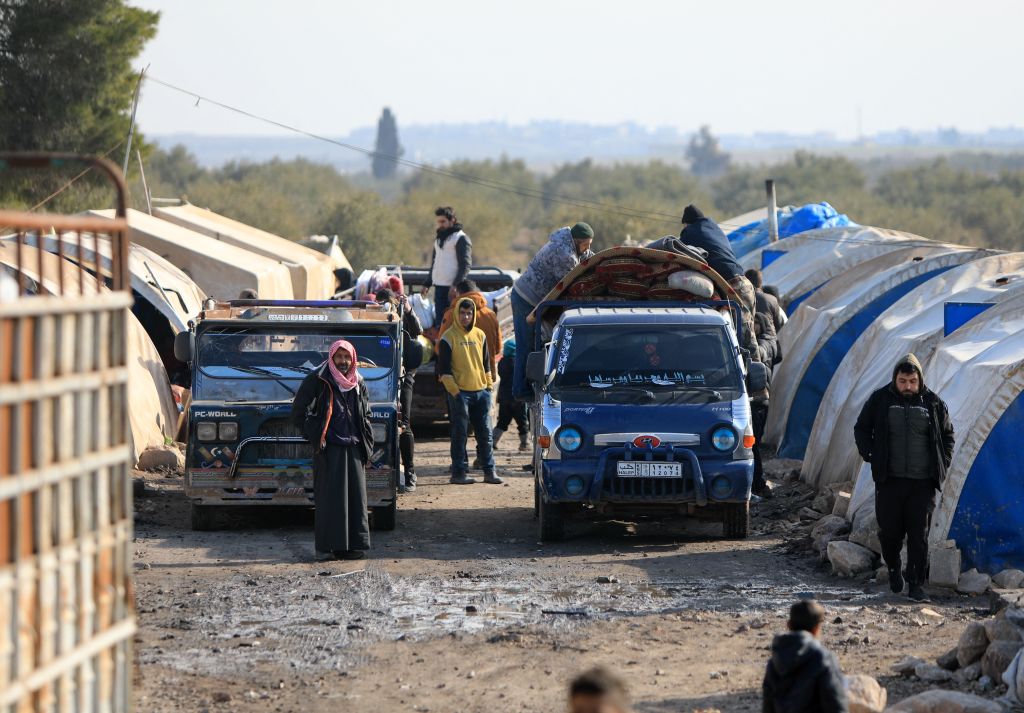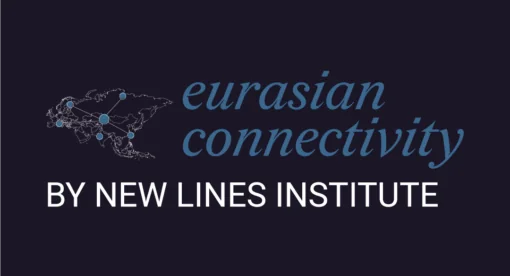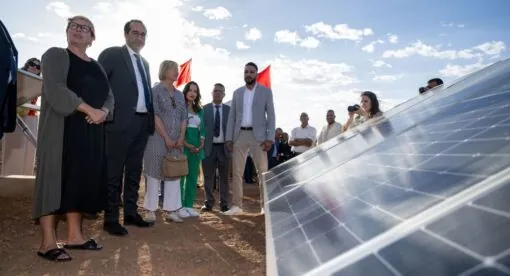Syrians residing in Turkey and northwest Syria have been flocking to Europe in increasing numbers over the past month. Several Syrian refugees caught and deported to Turkey in recent weeks have said that thousands of Syrians are caught daily trying to cross Turkey to Greece and Bulgaria. What is driving them is not another military offensive, but the prospect of Turkish restoration of diplomatic ties with the regime of Syrian President Bashar al Assad. While refugees in Turkey have a reason to fear deportation, as Ankara is looking to boost the number of Syrian returnees, the likelihood of normalization remains incredibly low, despite recent Turkish pronouncements.
The Political Situation In Turkey
Turkish President Recep Tayyip Erdoğan and Foreign Minister Mevlüt Çavuşoğlu’s recent statements about openness to diplomatic discussions with Damascus should be read in the context of domestic Turkish politics. Turkey’s economic crisis, which politicians have falsely blamed on Syrians rather than economic mismanagement, has increased Turkish public displeasure with continuing to host over 3 million Syrian refugees. A poll conducted in 2022 showed that two-thirds of Turks want Syrians to be deported back to Syria. Ahead of the 2023 elections, Turks are increasingly concerned about the issue of refugees: Eighteen percent of respondents of another poll stated that it’s the top issue of concern, marking a threefold rise in the share of Turks who rate this issue as their top priority.
Exploiting the unpopularity of the ruling Justice and Development Party (AKP) policy toward Syrian refugees, leaders of the country’s opposition parties, including the Republican People’s Party and the Good Party, vowed to normalize relations with the Syrian regime to facilitate the deportation of all Syrian refugees from Turkey. In February, Kemal Kılıçdaroğlu, the leader of the Republican People’s Party, stated that if he were elected, Turkey would normalize relations with the Assad regime and return all the Syrian refugees in the country. In May 2022, Meral Akşener, the leader of the Good Party, offered to travel to Damascus, “shake hands with Assad and send the immigrants from Syria back to their homeland.”
Attempting to assuage voters’ concerns, in May, Erdoğan again raised the prospect of conducting another military operation in northern Syria against the Syrian Democratic Forces (SDF) an alliance of militias dominated by the Syrian Kurdish group YPG, which was established and is run by Syrian leaders within the Kurdistan Workers’ Party (PKK), a Kurdish militant group that has waged a prolonged insurgency against Turkey. The operation, Erdoğan vowed, would entail creating a “safe zone” 30 kilometers (18.6 miles) wide to which over 1 million Syrian refugees can be returned. Prior to the 2019 “Peace Spring” operation waged by Turkey and its Syrian proxy militias, Erdoğan touted this plan as a solution to the refugee problem in Turkey. The conclusion of the 2019 operation, however, did not lead to mass voluntary returns to Syria. This stemmed from several factors: the insecurity plaguing the regions governed by the proxy militias, lack of employment opportunities, poor infrastructure, and uncertainty regarding the regions’ future.
Although the recently touted military operation could not have actually led to voluntary returns of meaningful numbers of Syrians, it at least provided the AKP with a way to demonstrate that it has a solution to the refugee problem and is working to implement it. However, after a summit with the Iranian and Russian leadership in Tehran in mid-July, during which Erdoğan was faced with stern opposition and threats from two other actors that maintain military presence in Syria, the military operation was delayed. In a sign of a retreat from their intent to carry out an imminent military operation in northeast Syria, Ankara welcomed the deployment of additional Syrian Army soldiers to SDF-controlled areas and offered to provide support to the Syrian regime in fighting the PKK.
Constrained in its ability to wage a new invasion into Syria, the AKP’s leadership began signaling that it has worked to normalize relations with the Assad regime as a solution to the refugee problem. Çavuşoğlu mentioned a brief meeting he held in October 2021 with a number of foreign ministers, including the powerless Syrian foreign minister, Faisal Miqdad, on the sidelines of a Non-Aligned Movement summit. He also mentioned the resumption of ties between the Syrian mukhabarat and Turkish intelligence, likely alluding to the much more substantive series of meetings held in 2021 between the top mukhabarat official, Ali Mamlouk, and Hakan Fidan, the head of Turkish National Intelligence Organization. Unsurprisingly, the talks did not produce any results due to the Syrian regime’s demand that Turkey retreat from Syrian territory.
Stagnation In Turkey’s Relationship with Syria
Meaningful engagement between Ankara and Damascus has yet to happen, but Turkey’s attitude toward the Assad regime is not the impediment. What has prevented any fruitful engagement between Ankara and Damascus is the inflexibility and vindictiveness, but also the weakness, of the Assad regime.
The Turks gave up on unseating the regime in 2016, when the Russian military intervention in Syria led to repeated opposition losses. Since then, Turkey has focused on the more modest goals of securing its border from the presence of the SDF and preventing the entry of additional refugees into Turkey. This resulted in repeated military interventions against the SDF in northeast Syria and the stationing of Turkish troops in Idlib to deter further regime advances in the rebel-held pocket.
The Syrian leadership has no interest in normalizing relations with Ankara as long as Turkish troops continue to occupy Syrian soil. However, for Turkey to ensure its interests are protected, it needs to secure commitments from the regime that it would prevent the PKK from using its territory to prepare attacks on Turkey and that it would not harm the residents of regions currently controlled by Turkey, lest those Syrians flee toward the Turkish border. Even if Damascus is willing to state that it would make those guarantees, Ankara knows full well that the regime is incapable and unwilling to fulfill them.
If Turkey were to pull out its military from northern Syria, precipitating a regime takeover, the number of refugees in Turkey will not decrease owing to normalization but will instead spike, as millions of Syrians will attempt to flee into Turkey. In every area it captured, the regime went after not only perceived opponents but also random individuals who had no connection to activism or armed resistance, according to residents of Daraa and the outskirts of Damascus. Hundreds of individuals detained in areas that fell back under regime control have already been tortured to death, out of the thousands detained. Conversations with Syrians residing under Turkish control in the north indicate that they would rather brave the bullets of Turkish border guards than be captured alive by the regime. A U.N. report concerning detention by the regime found that it committed “the crimes against humanity of extermination, murder, rape or other forms of sexual violence, torture, imprisonment, enforced disappearance and other inhuman acts.”
The survival of the Syrian regime rests on its ability to subject any citizen to extreme forms of abuse and death. This terror is what is preventing Syrians across regime-held areas, who are suffering from hunger, extreme poverty, and lack of services, from even complaining out loud. The regime simply will not let the rebellious north remain uncleansed of individuals and entire social groups it perceives as disloyal.
The regime’s military weakness limits its ability to effectively counter the PKK presence in Syria, which numbers in the thousands. Even if the regime decided that it is within its interests to combat the group, its military is made up of underfed, poorly trained, and unmotivated impoverished men, press-ganged into open-ended military service. Even if the United States were to withdraw its protection from the SDF, the regime would struggle to take over the border area in northeastern Syria to prevent the ongoing PKK activity there. The regime could use Iranian-backed militias, which have secured most of the regime’s military victories since March 2012. However, these militias continue to impose their control in all areas they have captured in Syria over the years, from southern Damascus back in 2013 to Saraqeb in 2020. Turkish officials have expressed concerns in private about the prospect of having Iranian-backed militias on their border, according to a researcher who engages with officials in Ankara. Syria and Turkey could work together to get rid of the PKK in Syrian territory, but no steps have been taken in that direction despite the inadequacies of Assad’s forces.
Normalization, the Status Quo, and Refugees in Turkey
Ankara is unable to secure its political and security interests through engagement with the regime. This may sound like good news to Syrians fearing imminent normalization, but Syrian refugees in Turkey are not safe. Ankara has attempted to placate Turkish voters by increasing the number of Syrians deported from the country. According to multiple deportees, the Syrians deported are beaten and forced to sign papers indicating that they are returning willingly, and thus Turkish officials occasionally boast about the number of Syrians who have “voluntarily” returned to Syria.
In 2019, the AKP lost its hold over the Istanbul municipality following a successful campaign by the Republican People’s Party, the largest opposition party, which presented a hard line against the continued presence of Syrians in the country. Following the loss, the AKP apparently attempted to bolster its credentials by carrying out a wave of mass deportations of Syrians, many of them holding residency permits in Istanbul, to rebel-held northwest Syria. This wave of deportations spread fear among Syrians in Turkey, leading to a 46% increase in the number of Syrian refugees attempting to cross to Europe in 2019 compared to the year prior.
During 2022, the number of Syrians deported from Turkey to Syria increased significantly, as can be seen from data shared by the administration of the Bab al-Hawa and Bab a-Salameh crossings into northern Syria, through which individuals are sent back. The reports about looming normalization between the Assad regime and Turkey increased the fears of Syrians in Turkey that they will be deported, driving them to try fleeing to Europe in larger numbers. Syrians who have attempted to cross into Greece or Bulgaria over the past month report that thousands are being captured by border guards daily and deported, in violation of international law. Yet desperate Syrians continue trying, taking on enormous debts to finance smuggling operations and risking their lives to escape to a safer country. Conversations with dozens of Syrian refugees in Istanbul and southern Turkey indicate that they believe more deportations are forthcoming ahead of the 2023 elections as the AKP attempts to court xenophobic voters, and that they are looking for a way out.
Turkey’s leadership knows it cannot achieve its desired results from normalizing relations with the Assad regime in its current form. The Syrian regime that existed before the war, which maintained tight control over its borders and viewed its population with suspicion but not as riddled with traitors, is impossible to revive. Thus, normalization with the Assad regime is useless; the regime simply cannot do what Turkey and other actors considering normalization want: guaranteeing security for returning refugees, limiting Iranian influence, pretending to negotiate with the opposition, or genuinely combating the Islamic State or the PKK.
Elizabeth Tsurkov is a Non-Resident Fellow at the New Lines Institute for Strategy & Policy and a Research Fellow at the Forum for Regional Thinking, an Israeli-Palestinian think-tank based in Jerusalem. Tsurkov is also a doctoral student in the Politics department at Princeton University. Her research focuses on the Levant (particularly, the Syrian uprising and civil war), and her work has appeared in the New York Times, New York Review of Books, Haaretz, Foreign Policy and other outlets. Follow her on Twitter @Elizrael.
The views expressed in this article are those of the author and not an official policy or position of the Newlines Institute.







